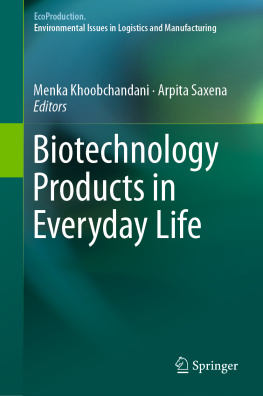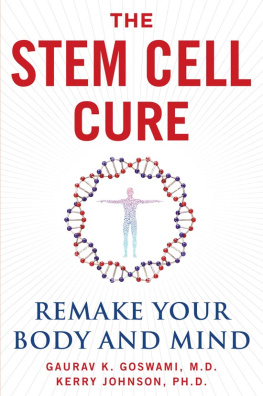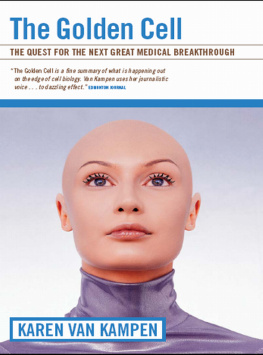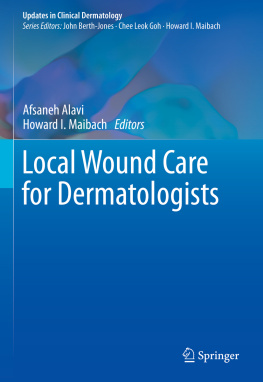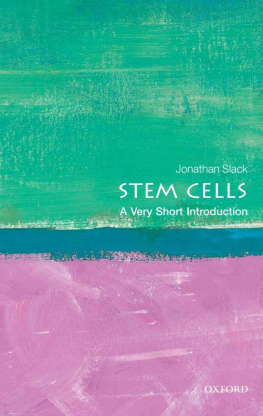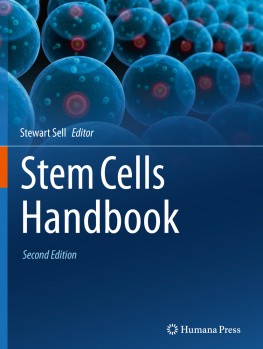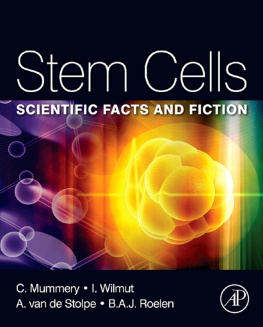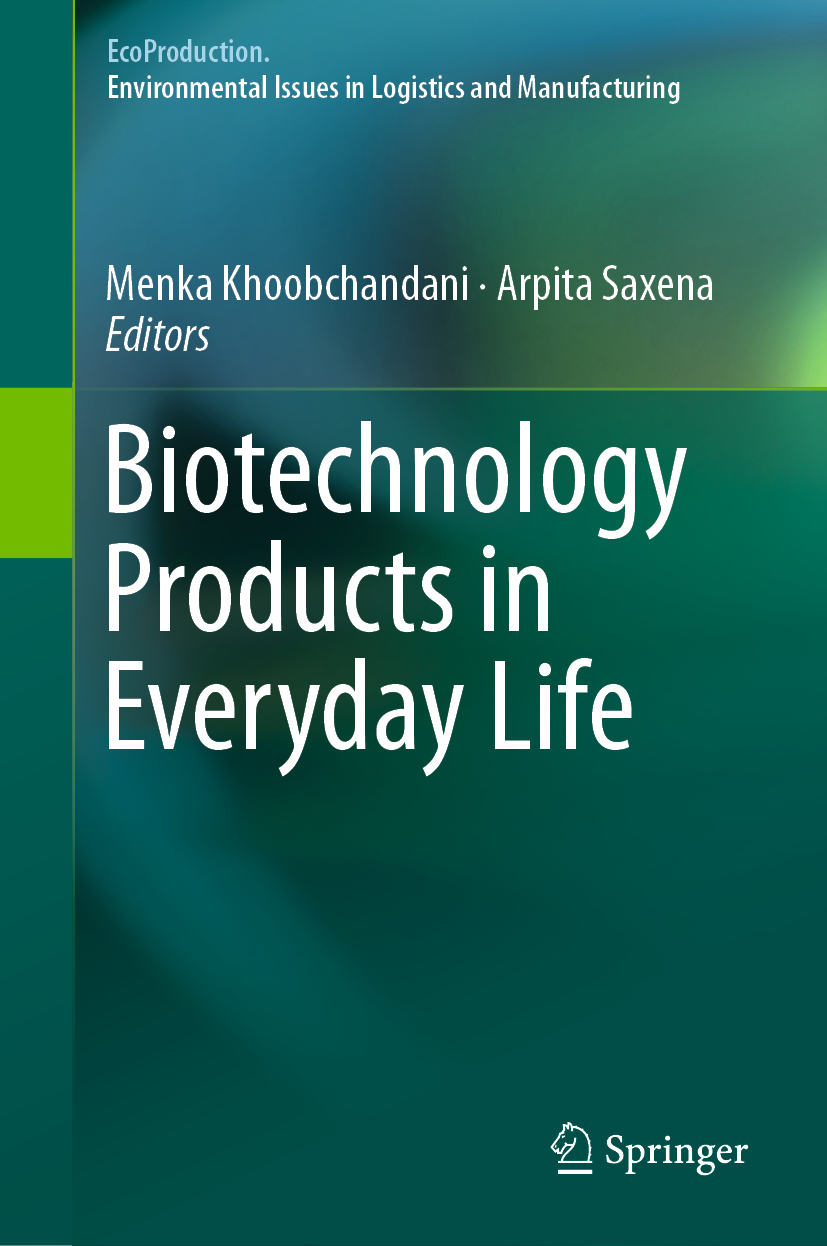EcoProduction Environmental Issues in Logistics and Manufacturing
Series Editor
Paulina Golinska-Dawson
Pozna, Poland
The EcoProduction Series is a forum for presenting emerging environmental issues in Logistics and Manufacturing. Its main objective is a multidisciplinary approach to link the scientific activities in various manufacturing and logistics fields with the sustainability research. It encompasses topical monographs and selected conference proceedings, authored or edited by leading experts as well as by promising young scientists. The Series aims to provide the impulse for new ideas by reporting on the state-of-the-art and motivating for the future development of sustainable manufacturing systems, environmentally conscious operations management and reverse or closed loop logistics.
It aims to bring together academic, industry and government personnel from various countries to present and discuss the challenges for implementation of sustainable policy in the field of production and logistics.
More information about this series at http://www.springer.com/series/10152
Editors
Menka Khoobchandani and Arpita Saxena
Biotechnology Products in Everyday Life
Editors
Menka Khoobchandani
Department of Radiology, University of Missouri, Columbia, MO, USA
Arpita Saxena
AAPT Foundation, Aurangabad, India
ISSN 2193-4614 e-ISSN 2193-4622
EcoProduction
ISBN 978-3-319-92398-7 e-ISBN 978-3-319-92399-4
https://doi.org/10.1007/978-3-319-92399-4
Library of Congress Control Number: 2018955453
Springer Nature Switzerland AG 2019
This work is subject to copyright. All rights are reserved by the Publisher, whether the whole or part of the material is concerned, specifically the rights of translation, reprinting, reuse of illustrations, recitation, broadcasting, reproduction on microfilms or in any other physical way, and transmission or information storage and retrieval, electronic adaptation, computer software, or by similar or dissimilar methodology now known or hereafter developed.
The use of general descriptive names, registered names, trademarks, service marks, etc. in this publication does not imply, even in the absence of a specific statement, that such names are exempt from the relevant protective laws and regulations and therefore free for general use.
The publisher, the authors and the editors are safe to assume that the advice and information in this book are believed to be true and accurate at the date of publication. Neither the publisher nor the authors or the editors give a warranty, express or implied, with respect to the material contained herein or for any errors or omissions that may have been made. The publisher remains neutral with regard to jurisdictional claims in published maps and institutional affiliations.
This Springer imprint is published by the registered company Springer Nature Switzerland AG
The registered company address is: Gewerbestrasse 11, 6330 Cham, Switzerland
We dedicate this effort to our parents, gurus, & to budding entrepreneurs who aspire to better the world with new ideas.
Foreword from Academia
Biotechnology is dynamically updating and upgrading its horizons. Studentsteachers and researcher communitiesneed to keep themselves abreast with the constantly changing dynamics of this subject. Dr. Arpita Saxena and Dr. Menka Khoobchandani are committed to this change and have put their best foot forward through this book Biotechnology Products in Everyday Life . The book covers a spectrum of 16 reviews and research articles categorized in seven parts. These parts are artistically named after colours of rainbow VIBGYOR that symbolize variety and beauty that the book offersranging from nanoparticle history and present medicinal applications in ailments like cancer. The flow drives us towards intelligent devices that act as interface between humans and machines, speeding up recovery by complementing medical practices or acting as alternatives altogether. The book revisits a long-discussed topicbioplasticsand talks about green energy, removal of arsenic from groundwater up to 97% in order to make it potable as per WHO guidelines, using solar energy. Moving ahead, we come across a point where this has the audacity to reconsider the status of genetically modified crops as well as proposes orphan crops guaranteeing food and nutrition security.
Having discussed about the crops which ensure food for all, the book takes us ahead to improvement of crop production of popular crops like soya bean by novel metabolites. Interestingly, the book also touches the applications of phyto-stem cells in cosmetic industry, which catches the limelight often. These products having stem cells capture the customers attention for being topically safe, elevating the skin quality and their anti-ageing properties. The next segment demonstrates an orchestrated effort of medical faculties to cure cerebral cavernous malformations, by targeted pharmacotherapies. Another author in the same section writes about current trends on herbal neuro-protection and how plant-derived pure compounds/extracts are preferred alternatives to treat nervous system disorders because of their non-toxic and long-lasting nature. Cancer is the most dreaded disease today, and targeted action against these cells with lost/mutated set of normal genes is most sought after. An article on dual targeting of cancer cells by radiolabeled metallic and polymeric nanoparticles is intriguing and reliving at the same time. The flow of ideas that started with nanoparticles finds another abode, where the cancer cells are countered by devices having intelligent targeted systems using nanoparticles.
The courageous ideas collaged by the authors from various locations across globe is a fresh change that transforms the mindsets of young readers towards broader spectrum of application of their subject. Spearheading one of the leading universities of India gives me the clarity to say that all research must lead to products. Products those are useful, competitive, commercially viable and scientifically bright. I have taken many initiatives to encourage entrepreneurship amongst my students including setting up an incubation centre for the excellence in innovation and entrepreneurship. We believe that academic non-compartmentalization should be encouraged and multidisciplinary projects leading to effective change should be brought about in the education system at all levels.
With the wide scope the book offers, I see many collaborative ideas and innovative products on the way. I congratulate Dr. Arpita Saxena and Dr. Menka Khoobchandani for successful editing of this book.
Prof. B. A. Chopade Ph.D. (Microbiology and Molecular Genetics) Nottingham University; Fogarty Fellow (Genetic Engineering) Illinois University; Present Position-Vice Chancellor, Dr. Babasaheb Ambedkar Marathwada University
Chicago, USA Aurangabad, Maharashtra, India
Foreword from Industry
Biotechnology has the key to revolutionize the future to a vast extent. To understand this in a better way, the editors of this book, Dr. Menka Khoobchandani and Dr. Arpita Saxena, have laid down simple and understanding modules to explain the upcoming technological advances through their unique concept of VIBGYOR of biotechnology.

